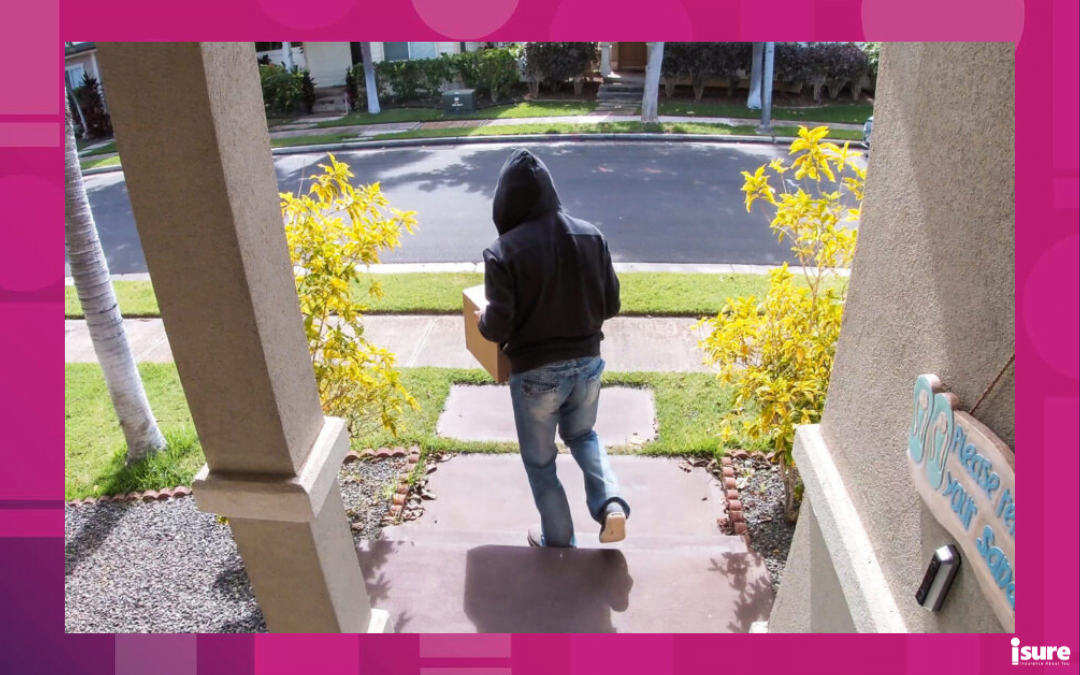Holiday shopping can be simple or stressful. It can be done from the comfort of your home or amid thousands at nearby malls. You might want to buy something from major chains or a Mom & Pop shop, but no matter HOW you do your shopping, one thing you can never neglect is how to shop safely during the holiday season! With the threat of identity theft and scams increasing, you need to be careful now, more than ever.
But how do you shop safely? How can you keep your identity secure in both digital and in-person environments? While the situations are different, some of the common safety tips are the same. So, let’s run through some of the ways you can shop safely during the holiday season, both online and offline.
Shop safely during the holiday season, online
As online shopping increases, so does the chance of encountering online fraud. While it may be the best, easiest and fastest way for people to do their holiday shopping, it’s always important to protect yourself. Here are the seven best ways to safely shop online:
1. If it looks too good to be true, it probably is
Online fraudsters choose popular items and trends and list them at low prices to lure in customers. Instead of a great deal, you will be giving away your payment information. Always check out the website URL for misspellings and look to see if their checkout is secure before sending payment.
2. Online shop from anywhere at home
At home, your router can only be accessed by you, meaning it’s safe from tampering or intrusion. When you use a public or free Wi-Fi access point, the data transmitted across those signals can often be open to anyone. That can enable someone else to ‘sniff’ that data and steal your information.
3. Make sure websites are secure
When you visit a website, look beside the address bar – you should see a little padlock and the word “Secure”. That means the data being entered on the site is encrypted. If it doesn’t show the padlock, you’ll see a circle with an “i” in the middle. You should avoid entering any credit card or personal information into those sites.
4. Use anti-virus, anti-malware and shop-safe tools
Many computer anti-virus/malware tools also come with shop safe tools. These tools add an extra layer of security. Programs like Bitdefender, Kaspersky and Norton have their own versions of this – use one!
5. Don’t use the same password for every account
It’s always said, but it needs to be said again – do NOT use the same password for every online account. Once an online scammer figures out one password, then it’s easy for them to turn around and try it on all of your accounts. Also, don’t worry if you have a hard time remembering all of your passwords. Most retailers now have that capability to instantly verify your identity so you can quickly reset your password each time you sign in.
6. Monitor your accounts using automatic alerts
Check to see what alert options are available for your credit and debit cards. You can often set different alerts that quickly notify you via text message or email when something is detected. Alerts can range from transaction amounts to frequency of charges, and even location of purchases.
7. Check out as a guest, when possible
Most online checkouts will ask you to sign up for an account or allow you to check out as a guest. When you create an account, the website can store your personal and purchase information on the websites’ internal server. While not common, if that company experiences a data breach, then your saved personal information could be at risk.
Shop safely during the holiday season, offline
Although we are in the midst of a pandemic, some people love shopping at centres or malls. If this is more your style, you’re likely already mindful to keep your credit cards and wallet tucked away safely. What you may not know is how new tools enable criminals to take your data without ever touching your wallet. Here are seven ways to shop safely in public:
1. Use an RFID wallet
The same technology that enables tap-and go-payments can also be used remotely. An RFID wallet prevents the radio waves that make that technology possible from being sent outside the wallet. This prevents someone with a mobile scanner to place it near your wallet and copy your data.
2. Use credit cards instead of debit
While debit cards have become safer in recent years, credit cards remain the safer option. If someone steals your card information or makes a fraudulent charge, a credit card will reimburse you almost immediately. Debit card fraud is harder to receive reimbursement because there are personal items attached to it.
3. Avoid using random ATM machines
Make sure you only use YOUR bank’s ATMs during business hours. Small card readers can be installed over existing ATM slots, and a mini camera can track your PIN. This enables a criminal to copy your card data and your PIN number. Bank branches inspect their machines daily to ensure there is no such tampering.
4. Checking out.
Use Apple Pay or a store payment app, if you’re able to.Use a credit card instead of cash, but make sure you disinfect your hands regularly while shopping.
5. Shop smart and early
Go shopping early in the day so you have access to the most options at the store. If you’re a senior, find out when the early senior hours are so you can shop in a clean, less-crowded store. Also, try to be organized with a list so you can make your way through the store quickly and consolidate trips. Leave kids at home, if possible, so you can shop faster. However, if you can’t, being organized can help make the trip quicker and more painless for everyone.
What do I do if I’ve been scammed?
Cyber threats can be difficult to spot. You may not even know that you’ve been tricked until it’s too late. If you are the victim of a scam or a potential compromise, you should take the following actions to report and lessen the risk:
- Contact your credit card company.
- Reset your account credentials for related accounts, such as your email or social media accounts.
- Report the incident to the Canadian Anti-Fraud Centre at 1-888-495-8501 or online at antifraudcentre.ca.
If in fear of any kind of data breach while shopping, make sure to report it immediately. Your credit card company can put measures into place to stop and track potential criminals. Your bank can also put a hold on your debit card to prevent further purchases, if necessary. The earlier you report, the quicker they can put a stop to it. Other than that, the best advice we have in order to shop safely during the holiday season is to trust your instincts because we’re far more intuitive than we give ourselves credit for. If something doesn’t FEEL right, walk away from it or close the browser.




